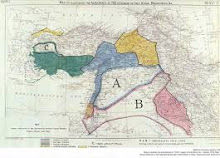(Adapted from an email I received - from www.PresentationZen.com
(These rules themselves are over-complicated and need simplifying.)
Below are 10 things (plus a bonus tip) learned from designers over the years. When I speak around the world I often put up a slide that asks people to make as many sentences as they can beginning with the word"Designers...." The goal of this activity is to get people thinking aboutthinking about design, something most of us never do (it also gets people in the audience talking, loosening up a bit; always a good thing). The sentences they generate range from "Designers wear black" to "Designers use creativity and analysis to solve problems" to "Designers make things beautiful," and so on.
This zen ten is broad and even a bit philosophical. Regardless of your profession, I hope there is an item or two that you can apply to your own work.
(1) Embrace constraints. Constraints and limitations are wonderful allies
and lead to enhanced creativity and ingenious solutions that without
constrains never would have been discovered or created. In the words of T.S.
Eliot, "Given total freedom the work is likely to sprawl." There's no point
complaining about constraints such as time, money, tools, etc. Your problem
is what it is. How can you solve it given the resources and time that you
have?
(2) Practice restraint - keep things simple. Any fool can be complicated and add more, it takes discipline of mind and strength of will to make the hard choices about what
to include and what to exclude. The genius is often in what you omit or
leave on the editing room floor.
(3) Adopt the beginner's mind - start from your audience . As the old saying goes, in the expert's mind there are few possibilities, but for one with the beginner's mind, the world
is wide open. Designers understand the need to take risks, especially during
early explorations of the problem. They are not afraid to break with
convention. Good designers are open minded and comfortable with ambiguity
early on in the process, this is how discoveries are made.
(4) Leave your ego at the door. This is not about you, it's about them (your
audience, customer, patient, student, etc.). Look at the problem from their
point of view -- put yourself in their shoes. This is not easy, it takes
great amounts of empathy. Get in touch with your empathetic side. Empathy
鈥" an under valued "soft skill," can be a great differentiator and is key
for truly understanding a problem.
(5) Focus on the experience. It's not the thing, it's the experience of the thing. This is related to #4 above: Put yourself in their shoes. How do people interact with your solution? Remember that much of
design has an emotional component, sometimes this is even the largest
component (though users may be unaware of this). Do not neglect the
emotional aspect of your solutions.
(6) Become a storyteller. Often it's not only the design 鈥" i.e.,
the solution to a problem 鈥" that is important, but the story of it. This
is related to #5 above. What's the meaning of the solution? Practice
illustrating the significance of solutions both verbally and visually. Start
with the general, zoom in to the detail, pull out again to remind us of the
theme or key concept, then zoom back in to illuminate more of the detail.
(7) Think communication not decoration. Design 鈥" even graphic design 鈥"
is not about beautification. Design is not just about aesthetics, though
aesthetics are important. More than anything, design is about solving
problems or making the current situation a little better than before. Design
is not art, though there is art in design.
(8) Obsess about ideas not tools. Tools are important and necessary, but
they come and go as better tools come along. Obsess instead about ideas.
Though most tools are ephemeral, some of your best tools are a simple pencil
and sketch pad. These are often the most useful 鈥" especially in the early
stages of thinking 鈥" because they are the most direct. Good advice is to
go analog in the beginning with the simplest tools possible.
(9) Clarify your intention. Design is about choices and intentions, it is
not accidental. Design is about process. The end user will usually not
notice "the design of it." It may seem like it just works, assuming they
think about it at all, but this ease-of-use (or ease-of-understanding) is
not by accident, it's a result of your careful choices and decisions.
(10) Sharpen your vision & curiosity. Learn from the lessons around you.
Good designers are skilled at noticing and observing. They are able to see
both the big picture and the details of the world around them. Humans are
natural pattern seekers; be mindful of this skill in yourself and in others.
Design is a "whole brain" process. You are creative, practical, rational,
analytic, empathetic, and passionate. Foster these aptitudes.
(11) Learn all the "rules" and know when and why to break them. Over the
centuries, those who came before us have established useful and necessary guidelines 鈥" these are often called rules or laws and it's important to know them. Yet, unlike other kinds of laws, it may be acceptable to break them at times so long as you know why. Basic graphic design principles and rules are important and useful to know, yet most professionals today have a hole in their education when it comes to the fundamentals of graphic design. I'll try to do my little bit with the next book to raise the design mindfulness and vocabulary of professionals who do not make a living in design per se, but who have a desire to get better.
